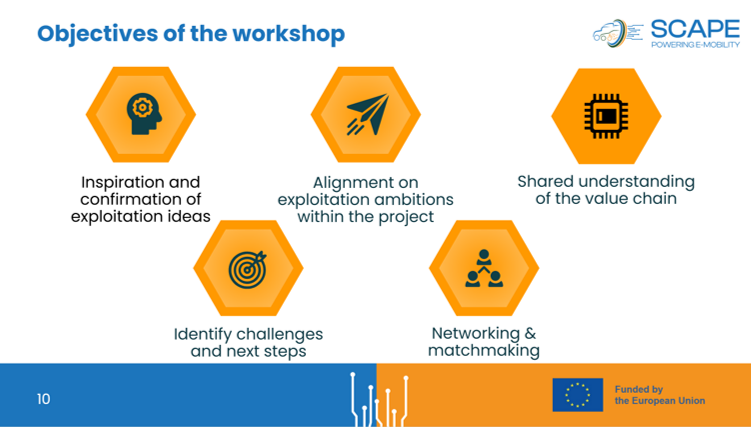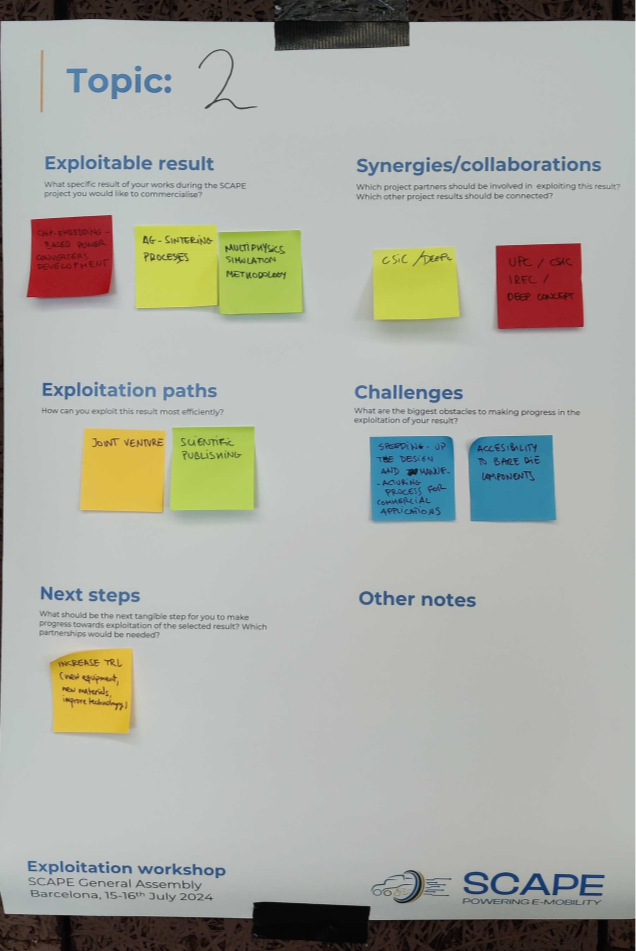Bulding SCAPE’s Legacy: Collaborative Exploration of Exploitation Routes
As part of SCAPE’s committment to buliding a long-lasting impact route for the outcomes of project research in terms of commercial, environmental and social benefits, partners have touched base at the project’s turning point to reconsider initial ideas for project exploitation routes and update strategies based on the project’s progress. An Exploitation Workshop (led by BAX) took place as a side event of the General Assembly in Barcelona bringing together Consortium and Advisory Board members to discuss the implications and possible future applications of SCAPE’s powertrain technology. The workshop focused on advancing key topics, including modular and scalable powertrain architecture, converter building-block implementation, advanced control systems for optimized performance, and powertrain implementation.

Participants engaged in collaborative discussions, aiming to identify potential exploitation routes for the project’s innovative developments. Among the primary outcomes was the emphasis on the need for further collaboration with Original Equipment Manufacturers (OEMs) and Tier 1 suppliers to explore commercialization possibilities.

The workshop highlighted several challenges, particularly the need for further development to increase the Technology Readiness Level (TRL) of various technologies. Notably, the modular and scalable powertrain architecture, while promising for its potential to reduce costs and simplify production, requires a paradigm shift in design and further refinement.
Key outcomes from the brainstorming sessions include potential routes for exploitation through joint ventures, patenting, and collaboration with industry. However, significant technical challenges and the slow pace of current processes were identified as barriers to commercial application.
The next steps of SCAPE’s exploitation journey involve defining end-users for the project’s results, clarifying the unique selling propositions (USPs), and initiating communications with potential industry partners. The goal is to ensure that the project’s innovative developments not only advance within the academic sphere but also find practical applications in the industry as future innovations in powertrain technology.

